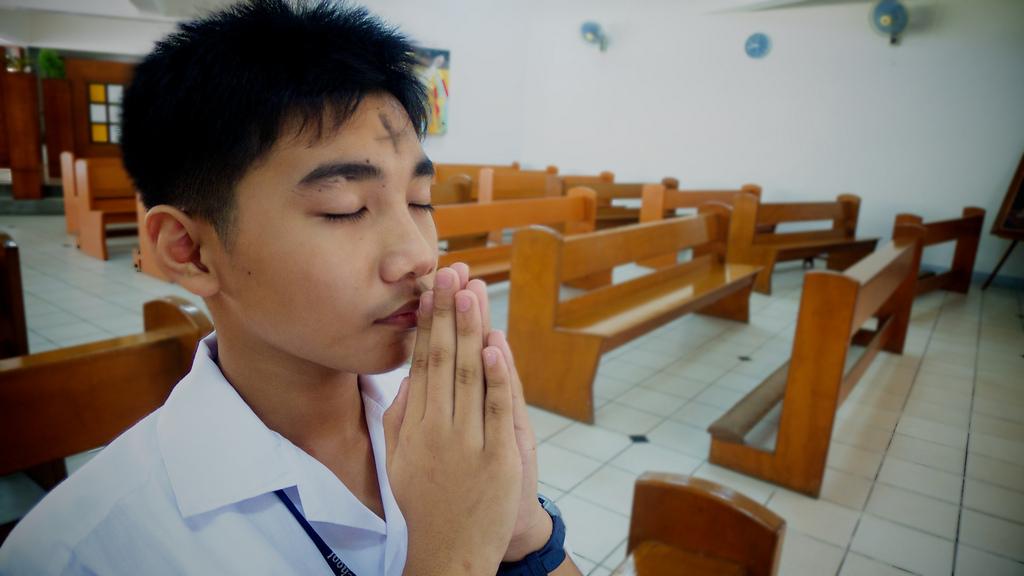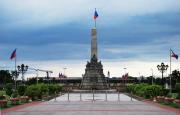
As a predominantly Catholic country, most people in the Philippines celebrate Lent, the period of fasting and sacrifice from Ash Wednesday to Maundy Thursday morning or to Easter Eve. Lent officially begins with Ash Wednesday, and this day holds a lot of significance for Filipinos, as it reminds them of Christ's sacrifice and their own mortality. Catholics Filipinos flock to Churches to hear masses held troughout the day and receive ashes in crosses on their foreheads.
Ash Wednesday is the first day of Lent in the Western Christian calendar. Occurring 46 days before Easter, it is a moveable fast that can fall as early as February 4 and as late as March 10.
According to the canonical gospels of Matthew, Mark and Luke; Jesus spent 40 days fasting in the desert, where he endured temptation by Satan. Ash Wednesday marks the beginning of this 40-day liturgical period of prayer and fasting or abstinence. Of the 46 days until Easter, six are Sundays. As the Christian sabbath, Sundays are not included in the fasting period and are instead "feast" days during Lent.
Ash Wednesday derives its name from the practice of placing ashes on the foreheads of adherents as a reminder and celebration of human mortality, and as a sign of mourning and repentance to God. The ashes used are typically gathered from the burning of the palms from the previous year's Palm Sunday.
This practice is common in much of Christendom, being observed mainly by Catholics, Anglicans, Lutherans, and Methodists.
At masses and services of worship on this day, ashes are imposed on the foreheads of the faithful (or on the tonsure spots, in the case of some clergy). The priest, minister, or in some cases officiating layperson, marks the forehead of each participant with black ashes in the sign of the cross, which the worshipper traditionally retains until it wears off. The act echoes the ancient Near Eastern tradition of throwing ashes over one's head to signify repentance before God (as related in the Bible). The priest or minister says one or both of the following when applying the ashes:Remember that thou art dust, and to dust thou shalt return.—Genesis 3:19, or Repent, and believe the Gospel.—Mark 1:15.
In the Catholic Church, Ash Wednesday is observed by fasting, abstinence from meat, and repentance—a day of contemplating one's transgressions. The Anglican Book of Common Prayer also designates Ash Wednesday as a day of fasting. In the medieval period, Ash Wednesday was the required annual day of penitential confession occurring after fasting and the remittance of the tithe. In other Christian denominations these practices are optional, with the main focus being on repentance. On Ash Wednesday and Good Friday, Catholics between the ages of 18 and 59 (whose health enables them to do so) are permitted to consume only one full meal, which may be supplemented by two smaller meals, which together should not equal the full meal. Some Catholics will go beyond the minimum obligations demanded by the Church and undertake a complete fast or a bread and water fast. Ash Wednesday and Good Friday are also days of abstinence from meat (mammals and fowl), as are all Fridays during Lent. Some Catholics continue fasting throughout Lent, as was the Church's traditional requirement, concluding only after the celebration of the Easter Vigil.








